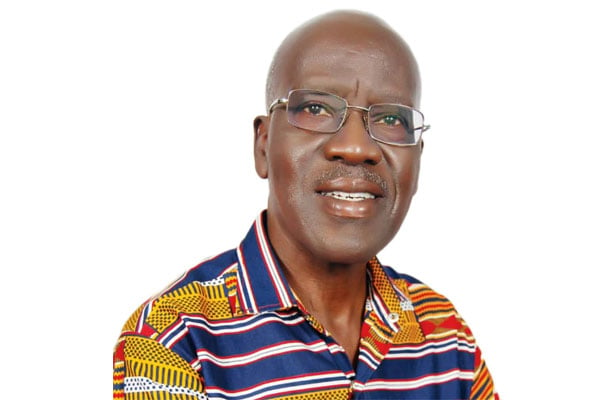To and from Russia without any love

Prof Timothy Wangusa
What you need to know:
- ‘Of that trip, two visual impressions of Moscow still persist in my memory”
Among the modest and infrequent number of trips that ‘yours truly’ here has ever made outside this beautiful and hardship land of our birth, two of them were to the same distant country – one before and one after a spectacular and irreversible ideological turning-point in that country. And that was Russia, which I respectively visited in 1983 and 1998. As it turned out, my first trip was just eight years before, and my second trip just seven years after, the now historically quotable 1991 ‘Collapse of the Soviet Union’. At the opposite ends of those 15 years I saw, in microcosm, the Russia that then was and the Russia that now is.
My 1983 trip to Russia was strictly just a stop-over in Moscow, en route to the city of Tashkent in Uzbekistan – some good 2, 800 km easterly distance from Moscow – for a literary conference. Of that trip, two indelible visual impressions of Moscow still persist in my memory. One was the incredibly orderly motoring discipline on the streets of Moscow, absolutely every motorist driving slowly with dimmed lights at night and perfectly observing lane protocol. And the second one was that I noticed there were only two makes of cars, one slightly larger than the other, on the streets of Moscow!
My 1998 trip was to a mini conference on international peace which took place just on the outskirts of Moscow, at a place called Uzkoe. (Elsewhere in my recollections I record how I caught only three intelligible and fundamental words in a two-hour Sunday service of the Russian Orthodox Church.) On this latter visit to the capital city of the vast country that sits upon two continents, I had a glimpse at Russia’s new economic system, typified in the dramatic and impressive range of makes and shapes and sizes of the cars that plied the streets of Moscow – in utter contrast to the only two shapes and sizes of cars that I had seen on the same streets 15 years back!
In the 25 years (1998-2023) since that second visit of mine, Russia has consolidated its new image as ‘the failed giant’ of the socialist-communist experiment. Karl Marx (1818-1883) must be turning in his grave at the demise of his dream of a socialist and communist new world, in which workers of every country unite in capturing power from their bourgeoisie or capitalist former task-masters; as must be equally turning in their graves the architects of the Russian Revolution (1917) as well as the Bolshevik and Communist ideologues that dominated Russia’s 20th century – as they witness, from below, the betrayal of their imaginary ideal of state ownership of all economic resources for the proportionate good of every citizen.
And my mind races back to the mid 1960s at Makerere University College, when my class of first-year students of Political Science was introduced to ‘Theoretical origins of contemporary political systems’ – including Marxism and Communism. Since then, as the saying goes, much water has flowed under the bridge.
Dead is the false dream of a world where religion, the so-called ‘opium of the people’, has been abolished; where the revolutionary spirit uniting all workers of the world is stronger than the nationalism of individual countries; where the state owns all means of production, in the mega system of ‘From everybody according to his ability/To everybody according to his need’; and where the machinery called ‘the state’ shall gradually ‘wither away’!
The inevitable ‘collapse of the Soviet Union’ in 1991 – and the attendant break-up of the much wider Communist Bloc – only needed a pin to prick the ideological balloon over-inflated by Russia as its kingpin. And Russia’s subsequent and current blatant military invasion of smaller countries of the extinct Union is most sobering. Altogether, I feel like I have been to Russia and back with no love gained or lost.
Prof Wangusa is a poet and novelist.


